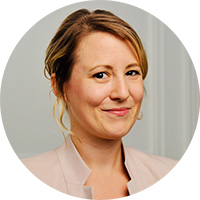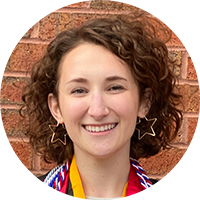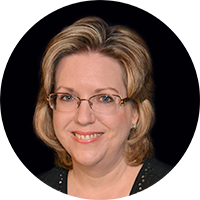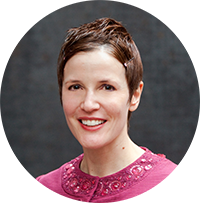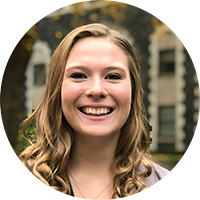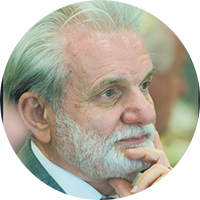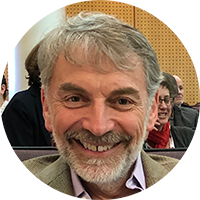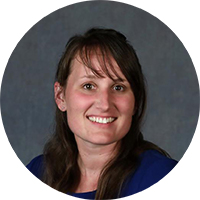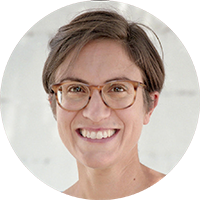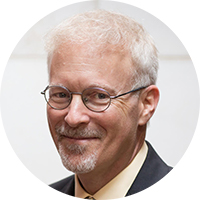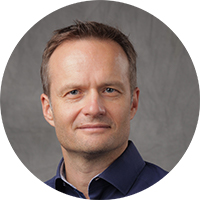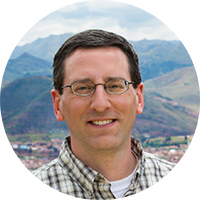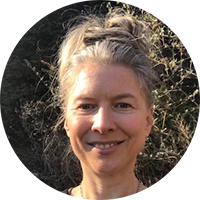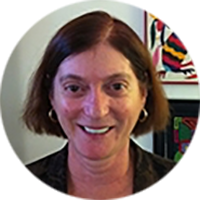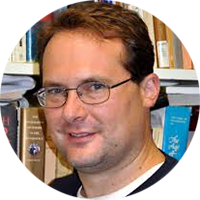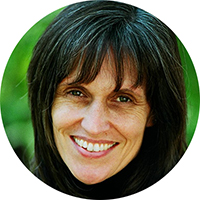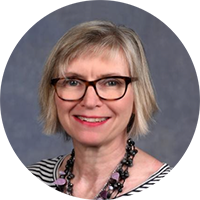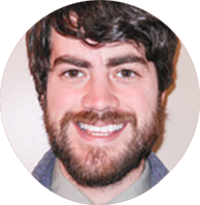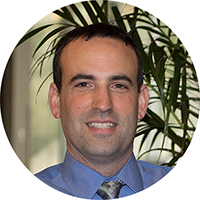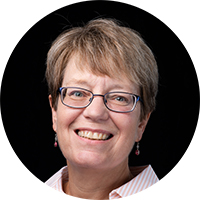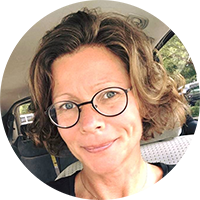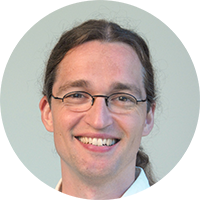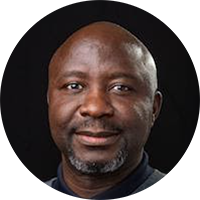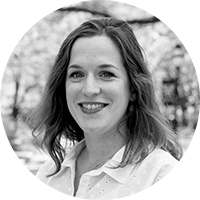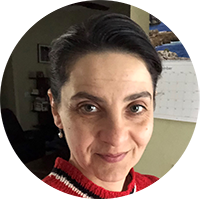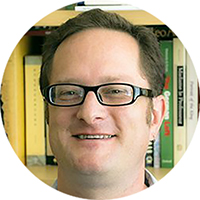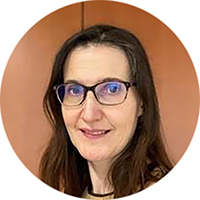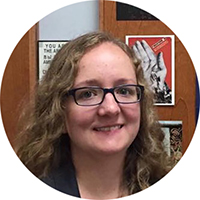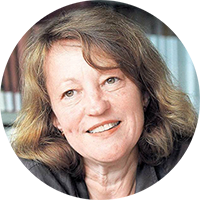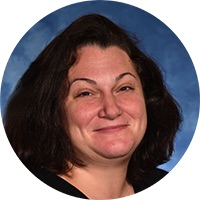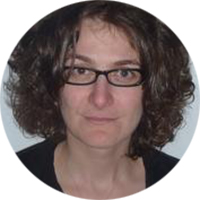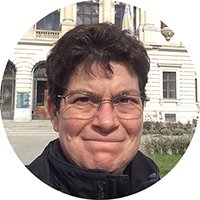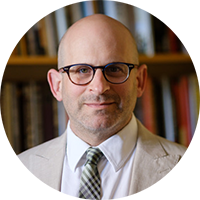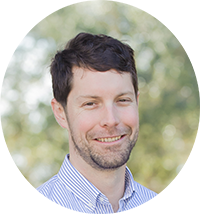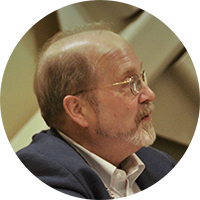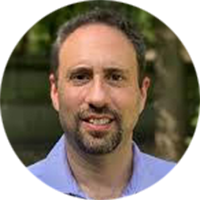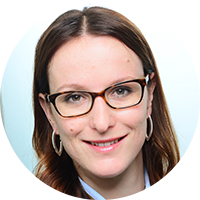Participants
Name: Dr. Anna-Carolin Augustin Position: Anna-Carolin Augustin joined the GHI as a research fellow in April 2019. Her main fields of interest are modern German-Jewish History and Culture with emphasis on Women's and Gender History as well as Jewish Material Culture. From 2011 – 2014 she was a fellow at the Walther Rathenau Graduiertenkolleg at the Moses Mendelssohn Center for European Jewish Studies (MMZ). She received her PhD in modern history from the Universität Potsdam in 2016. At the same time, she completed a two-year academic apprenticeship ("Wissenschaftliches Volontariat") at the Jewish Museum Berlin and worked on several exhibitions. Since 2017 she has devoted herself to provenance research in the field of Judaica. Her first monograph, Berliner Kunstmatronage. Sammlerinnen und Förderinnen bildender Kunst um 1900 was published in 2018 (Wallstein Publishing House). In her current research project, she examines the entangled object biographies and migration paths of Jewish ceremonial objects (Judaica) as well as their changing attributions of meaning and functions after 1945 in a transnational, cultural-historical study. Contact: augustin@ghi-dc.org |
Name: Klaus E. Becker Position: Klaus Becker was born in Marburg in 1953, grew up in Germany where he studied business and national economics and has a master's degree from Ruhr-Universitätin Bochum. Since 1979, he has lived in Charlotte, North Carolina, where he is entrepreneurially active in the international steel trade for the past 40 years. He presided over the Charlotte World Trade Association in the mid-nineties and was President of the German-American Chamber of Commerce in North Carolina for seven years. In January of 2014, he was appointed Honorary Consul of the Federal Republic of Germany for western North Carolina. In this function,hefoundedThe N.C. Zeitgeist Foundation which coordinates his consular activities. It is one goal of the Foundation to put Charlotteandsurroundings on the political maps of the German institutions in Washington, Berlin, and the German States. Further, the Foundation offers a wide array of aspects of German life to Charlotte and the region in artistic and cultural, journalistic and political, as well as historic and sports-related aspects (Bayern München and Borussia Dortmund played in Charlottesolelyuponinvitation of The N.C. Zeitgeist Foundation). Contact: klaus.becker@nirosteel.com |
Name: Sarah Brody ’20 Position: Sarah Brody graduated from Appalachian State University in spring of 2020 with dual degrees in history and French, along with a minor in Judaic, Holocaust, and Peace Studies. Her undergraduate thesis revolved around communal identities in post-World War II French Jewish communities. She is currently planning on starting a legal education at the University of Pennsylvania Carey Law School in the fall. Contact: sarahgbrody@gmail.com |
Name: Dr. Kellie D. Brown Position: Professor of Music, Chair of the Music Department at Milligan University Contact: kbrown@milligan.edu
|
Name: Dr. Suzanne Brown-Fleming Position: Oversees USHMM International Academic Programs Division Dr. Brown-Fleming joined the Museum in 2001 and oversees its International Academic Programs Division, which ensures that the field of Holocaust studies remains vital and vibrant around the world. Dr. Brown-Fleming’s work has been featured in the Catholic News Service (CNS), Catholic News Agency (CNA), and The Catholic Virginian. She has appeared on Cable News Network (CNN), EWTN Global Catholic Television Network, and several documentaries, including Holy Silence (2019), which premiered on PBS Television in November 2020. She is a 2021 Distinguished Fellow at the Institute for Contemporary History’s Center for Holocaust Studies in Munich and Berlin. Contact: sbrown-fleming@ushmm.org |
Name: Alexis Brouwer-Ancher Position: Alexis Brouwer-Ancher joined American Friends as a Program Coordinator in August 2019. She recently graduated summa cum laude from Fordham University with a BA in international political economy and German. She is a recipient of the Achievement Award in the Study of German Language and Literature from the Consulate General of Germany, and she is a member of the Phi Beta Kappa Honor Society and Sigma Iota Rho Honor Society for International Studies. She has studied the German language and culture from a young age, participating in an exchange program to Bavaria in high school. Alexis also completed her junior year of college at Ludwig Maximilians Universität in Munich, taking courses in intercultural communication and sustainable economic policy. Contact: abancher@americanfriendsofavh.org, Website: https://www.americanfriendsofavh.org/ |
Name: Dr. John Cox Position: John Cox is an associate professor of Global Studies at UNC Charlotte and directs the Center for Holocaust, Genocide & Human Rights Studies. Before coming to UNCC in 2011, John founded and directed a genocide & human rights-studies center at Florida Gulf Coast University. Cox earned his Ph.D. in History at UNC-Chapel Hill in 2006 and his M.A. (History) at Brandeis University. Dr. Cox has written and lectured widely on racism and genocide, human rights, and resistance to Nazism and other oppressive systems. His book on modern genocide and racism, To Kill a People: Genocide in the 20th Century (Oxford University Press, 2017) will be published in a 2nd edition later this year, adding a chapter on the Bosnian genocide of 1992-1995. His other publications include a book on anti-Nazi resistance, Circles of Resistance: Leftist, Jewish, and Youth Dissidence during the Third Reich (2009). Cox's current research projects include his monograph project, tentatively titled Rebellion and Resistance in the Nazi Empire: Fighting Hitler, Fighting for a New World; a major co-edited genocide-studies volume, The Routledge Handbook of Genocide Studies; and a co-edited book on genocide denial, related to the Center's April 2019 conference on that topic. Some of his writings can be found on his Academia.edu page (https://uncc.academia.edu/JCox) as well as on this site. John is also affiliated to Africana Studies, Latin American Studies, and the Department of History, and is co-founder and first president of UNCC's chapter of the American Association of University Professors (AAUP). Contact: jcox73@uncc.edu |
Name: Dr. David M. Crowe Position: David M. Crowe is a Presidential Fellow at Chapman University and Professor Emeritus of History & Law at Elon University. His recent publications include The Holocaust: Roots, History, and Aftermath, Second Edition; “Pathway to the Shoah: The Protocols, ‘Jewish Bolshevism,” Rosenberg, Goebbels, Ford, and Hitler,” in Hitler’s Mein Kampf: Prelude to the Holocaust ; Stalin’s Soviet Justice: ‘Show’ Trials, War Crimes Trials, and Nuremberg; “The Tokyo and Nuremberg IMT Trials: A Comparative Analysis,” in 70 Years On: The International Military Tribunal for the Far East; “The German Plunder and Theft of Jewish Property in the General Government,” in Nazi Law: From Nuremberg to Nuremberg; and “MacArthur, Keenan and the American Quest for Justice at the IMFTE” in Transcultural Justice at the Tokyo Tribunal: The Allied Struggle for Justice, 1946-48. He is currently writing Raphael Lemkin: The Life of a Visionary. Contact: crowed@elon.edu |
Name: Dr. Gabriel N. Finder Position: Gabriel Finder is a professor in the Department of Germanic Languages and Literatures at the University of Virginia (UVA) and an affiliate faculty member in the university’s Jewish Studies Program, which he directed for seven-and-a-half years. His courses include the Holocaust, the Holocaust and law (postwar trials and legal issues arising out of the Holocaust), Holocaust testimony, and German Jewish history and culture. His research addresses the Holocaust, Jewish rebuilding in its aftermath, postwar justice, and Jewish cultural production after the Holocaust. He is currently developing a research project on Jews in communist China. Finder recently edited and wrote the introduction to “Postwar Justice—A Virtual Issue,” Holocaust and Genocide Studies (February 2021; https://academic.oup.com/hgs/pages/post-war-justice-virtual-issue). His other recent publications include “‘A Horrific Impression of Jewish Martyrdom’: Regarding Extermination of Polish Jews: Album of Pictures,” Journal of Holocaust Research 34, no. 4 (2020): 388–408 (“Interrogating Evil: A Special Issue of the Journal of Holocaust Research for Lawrence L. Langer on His Ninetieth Birthday,” ed. Gabriel N. Finder, Dawn Skorczewski, and Dan Stone), an issue to which he also contributed the coauthored introduction; “War Crimes Trials and Postwar Justice,” in Understanding and Teaching the Holocaust, ed. Laura Hilton and Avinoam Patt (Madison, WI: University of Wisconsin Press, 2020), 178–96; “‘I’m Allowed, I’m a Jew’: Oliver Polak and Holocaust Humor in Contemporary Germany, in Laughter After: Humor and the Holocaust, ed. David Slucki, Gabriel N. Finder and Avinoam Patt (Detroit: Wayne State University Press, 2020), 219–40, an edited volume to which he also contributed the coauthored introduction; “The Warsaw Ghetto Uprising at Nuremberg,” American Jewish History 103, no. 2 (2019): 177–202; and Justice Behind the Iron Curtain: Nazis on Trial in Communist Poland, coauthored with Alexander V. Prusin (Toronto: University of Toronto Press, 2018). Finder’s contribution to the SGSW Workshop originates in research conducted for his forthcoming book chapter, “Jacob Rosenfeld: A Viennese Jewish Doctor Discovers Home in Mao Zedong’s People’s Liberation Army,’ in Cultural Translation and Knowledge Transfer on Alternative Routes of Escape from Nazi Terror: Mediations through Migrations, ed. Susanne Korbel and Philipp Strobl (Abingdon, UK: Routledge, forthcoming 2021). Contact: gf6n@virginia.edu |
Name: Dr. Emily Frazier-Rath Position: Emily Frazier-RathearnedherPhD in German Studies with a Graduate Certificate in Jewish Studies from the University of Colorado Boulder. She is currently Visiting Professor of German Studies at Davidson College. Her research interests include the intersections of race, gender, and migration in Europe; activisms, especially refugee activisms; post-1945 German literature, film, and culture; and transnational feminist cultural studies. Contact: emfrazierrath@davidson.edu |
Name: Dr. Bryan Ganaway Position: Associate Dean of the Honors College at the College of Charleston Bryan Ganaway received his Ph.D. in Modern European History from the University of Illinois in 2003. He is currently the Associate Dean of the Honors College at the College of Charleston. His book Toys, Consumption, and Middle-class Childhood in Imperial Germany came out in 2010. Ganaway is completing an article on how the University of Berlin shaped the intellectual trajectory of W.E.B. Du Bois as part of an edited Volume called Teaching to Transgress. Contact: GanawayB@cofc.edu |
Name: Dr. Kata Gellen Position: Duke University Associate Professor, German Studies Department, Center for Jewish Studies Contact Info: kata.gellen@duke.edu Kata Gellen is an Associate Professor in the German Studies Department and at the Center for Jewish Studies at Duke University. Her research focuses on German literary modernism, German Jewish Studies, and film studies. Her first book, Kafka and Noise: The Discovery of Cinematic Sound in Literary Modernism (2019), used concepts from film theory and practice to explore the many inscrutable sounds and voices in Kafka’s fictions. Her current book project, Once and Future Galicia: East European Jewish Modernity in the Literary Writings of Joseph Roth and Soma Morgenstern, examines the place of the former Habsburg territory in the literary imagination of two underexplored twentieth-century German Jewish writers. |
Name: Abby Gibbons Position: Abby Gibbons is a Ph.D. student in the Division of Late Medieval and Reformation Studies in the History Department at the University of Arizona. She received her M.A. from the University of Alabama where her work focused on the sixteenth-century colloquial writings of Martin Luther and Desiderius Erasmus. She examined how they rhetorically and discursively shaped idealized standards for women’s behavior in society. Her current work is concerned with similar questions of how intellectuals attempted to govern behavior through treatises and laws, particularly within criminal contexts, while also considering the lived experiences of men and women during the Reformations. Contact: aegibbons1@crimson.ua.edu |
Name: Dr. Norman JW Goda Position: Norman JW Goda is the Norman and Irma Braman Professor of Holocaust Studies at the University of Florida and the Director of the Center for Jewish Studies there. He is the author, co-author, or editor of nine books including Tales From Spandau: Nazi Criminals and the Cold War; The Holocaust: Europe, the World and the Jews, 1918-1945; US Intelligence and the Nazis; and Rethinking Holocaust Justice: Essays Across Disciplines. He is currently working on a book on the 1987 Klaus Barbie Trial in Lyon. Contact: goda@ufl.edu |
Name: Dr. Gundolf Graml Position: Gundolf GramlisProfessor of German Studies at Agnes Scott College, where he teaches courses on German and Austrian literature, cinema, and cultural history, and culture. He has published widely on the role of tourism in German and Austrian national identity formation.Graml won the 2013 Max Kade Prize for best article in the Journal for Austrian Studies and his peer-reviewed research has also been published in journals such as Colloquia Germanica, Monatshefte, Women in German Yearbook, Tourism Studies,Comparativ: Zeitschrift für Globalgeschichte, among others. His most recent publications include the monograph Austria Revisited: Tourism, Space and National Identity from 1945 to the Present, published with Berghahn Press in 2020and the translation of excerpts from Reinhold Messner’s memoir Am Abgrund, published in 2020 in the anthology Mountains and the German Mind: Translations from Gessner to Messner, 1541-2009, edited by Sean Ireton and Caroline Schaumann.Graml's interest in the cultural history of tourism and travel also shapes his current role as Associate Dean for Curriculum and Strategic Initiatives, which includes directing the college's Center for Global Learning and the SUMMIT global learning and leadership development experience. Contact: ggraml@agnesscott.edu |
Name: Dr. J. Laurence Hare Position: J. Laurence Hare is Associate Professor and Chair of the Department of History at the University of Arkansas. HeholdsaPhD from the University of North Carolina at Chapel Hill and is the author of Excavating Nations: Archaeology, Museums, and the German-Danish Borderlands (University of Toronto Press) and Essential Skills for Historians: A Practical Guide to Researching the Past, co-authored with Jack Wells and Bruce E. Baker (Bloomsbury). His current research concerns the impact of German cultural and intellectual exchange with Scandinavia and the evolution of German Nordicist thought in the nineteenth and twentieth centuries. Contact: (479) 575-5890, lhare@uark.edu |
Name: Dr. Stefanie Hofer Position: Stefanie Hofer is an associate professor of German in the Department of Modern and Classical LanguagesandLiteratures at Virginia Tech. She has published on contemporary German literature and cinematic depictions of Germany’s struggle to come to terms with Nazi atrocities and left-wing terrorism. Her current research focuses on the role of autobiographical narratives in post-traumatic healing. Drawing from her own experiences after the murderofherhusbandduringthe April 16, 2007, shootings at Virginia Tech, she arguesthatanalyzingliteraryandfilmic depictions of loss and trauma across time and cultures can serve as a catharsis for grieving and, ultimately, provide a self-determined space for working through trauma. Her work has appeared in scholarly journals for German Studies such as German Life and Letters, Seminar, Women in German Yearbook, for Cinema Studies such as Film Criticism, and for Psychoanalysis such as American Imago. Furthermore, her essay “Lockout: Spacing Trauma and Recovery in the Aftermath of the Virginia Tech Shootings” was the lead article in a special issue dedicated to “Memory and Remembrance: Essays in Psychoanalytic Autobiography” in American Imago. Her research has also been supported by several internal research grants at VT. In 2017, she received the Sturm Award for Faculty Excellence in Research from the VT chapter of Phi Beta Kappa. Contact: 331 Major Williams Hall (0225) |
Name: Dr. Derek Holmgren Position: Derek Holmgren is an adjunct professor of history at Greensboro College. His research concerns the attempts by German civil governments and occupying military authorities to overcome the postwar refugee crisis in Germany along with the historical development of humanitarianism. His current book project, “Taming Displacement: Humanitarianism in Postwar Germany” addresses these themes, as does his recently published article in Central European History, “Managing Displaced Populations” Contact: holmgrenderek@gmail.com |
Name: Chayyim Holtkamp Position: Chayyim Holtkamp (she/hers or they/them) is a current graduate student at the College of Charleston and the Citadel pursuing their History M.A. They graduated from Appalachian State University with a B.S. in Psychology and History, minoring in Judaic, Holocaust, and Peace Studies. Their main interests include disability history and the Holocaust, particularly with the persecution of disabled people and Nazi medical experiments. Their current thesis analyzes resistance by patients at the South Carolina Lunatic Asylum during the 19th century, with special attention to race and gender. Contact: holtkampm@g.cofc.edu |
Name: Dr. Rosemary Horowitz Position: Rosemary Horowitz joined the faculty of Appalachian State University (ASU) in 1995 and has been active in ASU’s Center for Judaic, Holocaust, and Peace Studies since its inception in 2002. Her ongoing research focuses on topics related to Jewish literacy and literature. Besides publishing numerous essays on those topics, she has three edited collections: Women Writers of Yiddish Literature (McFarland Press, 2015); Memorial Books of Eastern European Jewry: Essays on the History and MeaningsofYizker Volumes (McFarland Press, 2011); and Elie Wiesel and the Art of Storytelling (McFarland Press, 2006). Current projects include a study of Jewishness in the works of the French filmmaker Jean Pierre Melville, an analysis of gender in Uri Orlev’s and Kathy Kacer’s literature about the Holocaust for children, andanessayaboutincorporatingyizker books in the classroom. Contact: horowitzr@appstate.edu |
Name: Dr. David S. Johnson Position: Dr. David Johnson, associate professor of Global Studies and German, serves as director of the Global Studies Program. His instructional duties include courses in Global Studies and all levels of German language, literature, and culture. Dr. Johnson has published in a number of areas of inquiry, including representations of masculinity, leisure, consumer culture, and German-Polish cultural exchanges. His current research project focuses on environmental representations of Silesia from the mid-nineteenth century to the present. Contact: johnsod1@uah.edu |
Name: Kevin Kennedy Position: Kevin Kennedy is a professor of German in the Department of Languages, Literaturesand Cultures at Appalachian State University. His research interests include Goethe and German Film. As a documentarian, he has screened his award-winning films onGerman Diaspora in England, Turkey, Canada, Jamaica, Chile, Germany, and across the U.S. Contact: kennedykg@appstate.edu |
Name: Dr. Eric Kurlander Position: Dr. Eric Kurlander is the William R. Kenan Jr. Professor of History at Stetson University. Kurlander earned his BA at Bowdoin College and his MA and PhD at Harvard University, and offers courses on Modern German, European, and World History. His books include Hitler’s Monsters: A Supernatural History of the Third Reich (Yale, 2017; paperback 2018), Living With Hitler: Liberal Democrats in the Third Reich (Yale, 2009), The Price of Exclusion: Ethnicity, National Identity, and the Decline of German Liberalism, 1898-1933 (Berghahn, 2006) and two co-edited volumes, Revisiting the ‘Nazi Occult’: Histories, Realities, Legacies (Camden House, 2015) and Transcultural Encounters between Germany and India: Kindred Spirits in the 19th and 20th Centuries (Routledge, 2014). He has held research and writing fellowships from the Fulbright Foundation; Alexander von Humboldt Foundation; the German Historical Institute; the German Academic Exchange Service; the Krupp Foundation; and Harvard University's Program for the Study of Germany and Europe. He is currently working on a co-written textbook titled Modern Germany: A Global History (Oxford, 2022) and a monograph, Before the Final Solution: A Global History of the Nazi “Jewish Question” 1919-1941. Contact: ekurland@stetson.edu |
Name: Dr. Russel Lemmons Position: Russel Lemmonsisdistinguished professor of History at Jacksonville State University.His is the author of two books, Goebbels and Der Angriff, and Hitler’s Rival, both published by the University Press of Kentucky. His current research project is tentatively titled “The Apostle of Munich: The Life and Cult of Rupert Mayer, S.J.,” a biography of a Jesuit priest who resisted National Socialism. Contact: rlemmons@jsu.edu |
Name: Dr. Birgit Maier-Katkin Position: Birgit Maier-KatkinisAssociate Professor of German at Florida State University. Her research centers on 20th and 21st German literature with a special focus on exile writers, cross-cultural topics, as well as memory and border studies. She has published numerous articles among them essays on Anna Seghers, Walter Benjamin, Hannah Arendt, and Yoko Tawada. Her book Silence and Acts of Memory examines literature’s contribution to historical memory as well as its impact on cultural identity. In addition to language courses, she teaches seminars on German literature and culture with a special focus on Human Rights and transcultural themes. Contact: bmaierkatkin@fsu.edu |
Name: Dr. Maggie McCarthy Position: Chair, Department of German Studies, Davidson College Contact Info: mamccarthy@davidson.edu, https://www.davidson.edu/people/maggie-mccarthy Maggie McCarthy is Professor of German Studies at Davidson College. She co-edited the Women in German Yearbook as well as Light Motives: German Popular Film in Perspective (2003). More recently she edited Pop Literature: A Companion (2015) and authored Mad Mädchen. Feminism and Generational Conflict in Recent German Literature and Film. |
Name: Blake McKinney Position: Ph.D. Candidate, Department of History, The University of Alabama Contact Info: 202 ten Hoor Hall Box 870212 Tuscaloosa, AL 35487; Email: bomckinney@crimson.ua.edu Blake McKinney is a Ph.D. candidate in European and Religious history at the University of Alabama. He is defending his dissertation this spring entitled, “The National and International Church: National Socialism, German Protestantism, and the Watching World.” He demonstrates the profound role that international opinion and intervention played in German church politics in the 1930s, and provides a new perspective on the complicated interplay of Church and State in the 20th century. |
|
Name: Dr. David Meola Position: David Meola is the Bert & Fanny Meisler Assistant Professor of History and Jewish Studies at the University of South Alabama. He received his M.A. in European Studies and Ph.D. in History from the University of British Columbia - Vancouver, and his research focuses on German-Jewish life during the Vormaerz. His first manuscript and published articles mainly focus on Jews' participation in local, German newsprint during the 1840s. He has articles in the Leo Baeck Institute Yearbook, Antisemitism Studies, and in edited volumes related to German publishing and the German-Jewish press. His next project--for which he has earned a J. William Fulbright US Scholar Grant--will interrogate the involvement of Jews in the democratic and liberal movements during the Vormaerz and the revolutions of 1848, as well as German-Jewish exiles' involvement in the US abolitionist movement and the Civil War.Contact: dameola@southalabama.edu |
|
Name: M. Blake Morley Position: Blake is a student of Modern European intellectual and cultural history. His research focuses on the intersection of aesthetic thought and politics. He is currently working on a dissertation that explores the relationship between Viennese Modernism and Austria-Hungary’s occupation of Bosnia-Herzegovina (1878-1908)." Contact: mmorley2@gsu.edu |
Name: Dr. Beverly Moser Position: Dr. Beverly MoserisProfessor of German in the Department of Languages, Literatures, and Cultures. A linguist by training, she teaches all levels of German. With respect to Holocaust studies, she engages German students in project-based learning, where they read culturally authentic texts on the Holocaust, biographies of Sophie Scholl and others working in the resistance, and youth literature, to gain reading skills in German. Dr. Moser is an avid supporter of all languages within her department and is helps German students find cross-disciplinary connections between German and all other fields of study. Contact: moserba@appstate.edu
|
Name: Dr. Agnes Mueller Position: Distinguished Professor of the Humanities, University of South Carolina Agnes Mueller (M.A., LMU Munich, Germany, 1993, Ph.D., Vanderbilt U, 1997), Professor, is an expert on recent and contemporary German literature. She is core faculty in Comparative Literature and affiliated with Women's and Gender Studies and with Jewish Studies. Her publications are on German-American relations, multicultural studies, gender issues in contemporary literature, German-Jewish studies, and Holocaust studies. Her 2004 anthology German Pop Culture: How "American" Is It? (U of Michigan P) is widely used for teaching and research. In addition to all levels of German language and culture, she regularly teaches advanced undergraduate and graduate classes, and has lectured in Germany, Canada, and the U.S. Her most recently published book is entitled The Inability to Love: Jews, Gender, and America in Recent German Literature now available in German translation as Die Unfaehigkeit zu lieben. She is currently at work on a new project, entitled Holocaust Migration: Jewish Fiction in Today's Germany. In it, she traces the ways in which challenges of living in a multi-ethnic society where past trauma is dispersed are negotiated. Contact: ACMUELLE@mailbox.sc.edu |
Name: Dr. Thomas Pegelow Kaplan Position: Leon Levine Distinguished Professor of Judaic, Holocaust, and Peace Studies, Director, Center for Judaic, Holocaust, and Peace Studies, Professor of History Contact Info: Appalachian State University P.O. Box 32146 Edwin Duncan Hall, Room 102B Boone, NC 28608 USA; Ph.: +1-828-262-6118 (Office) Email: thomaspegelowkaplan@appstate.edu Thomas Pegelow Kaplan is the Leon Levine Distinguished Professor and director of the Center for Judaic, Holocaust, and Peace Studies as well as a professor of history at Appalachian State University in North Carolina. Prior to coming to ASU, Pegelow Kaplan taught at Grinnell College, Davidson College and De La Salle University in Manila, Philippines. Pegelow Kaplan’s research focuses on histories of violence, language, and culture of Nazi Germany and the 1960s global youth revolts. He has been a research fellow at – among others – the International Institute for Holocaust Research, Yad Vashem; the Simon-Dubnow-Institute for Jewish History and Culture at Leipzig University, the Center for Research on Anti-Semitism at the Technical University of Berlin, and the German Historical Institute, Washington. Pegelow Kaplan is the author of The Language of Nazi Genocide: Linguistic Violence and the Struggle of Germans of Jewish Ancestry (2011) and co-editor of Beyond ‘Ordinary Men’: Christopher R. Browning and Holocaust Historiography (2019; with Juergen Matthaeus) and Resisting Persecution: Jews and Their Petitions during the Holocaust (2020; with Wolf Gruner). |
Name: Dr. Folarin Oguntoyinbo Position: Folarin is an Assistant Professor of Fermentation Science at the A.R. Smith Department of Chemistry and Fermentation Sciences, Appalachian State University, Boone. He was a Georg Forster Experienced Researcher of the Alexander von Humboldt at the Max Rubner-Institut, Institut für Microbiologie und Biotechnologie, Kiel, Germany as well as Newton International Fellow of the Royal Society, UK at the Institute of Food Research, Norwich, UK, now Quadram Institute Bioscience. His teaching and research focus on fermentation microbiology and its industrial applications. Contact: oguntoyinbofa@appstate.edu |
Name: Dr. Brooke Falk Permenter Position: Faculty Fellow, Director of Student Engagement, College of Charleston Brooke Falk Permenter is a Faculty Fellow and Director of Student Engagement for the College of Charleston Honors College. She completed her PhD in Art History at Rutgers University in 2017 and has taught at her alma mater since 2011. Her research focuses primarily on late medieval religious conflict as it is represented in fifteenth-century manuscripts and printed books. Currently she is pursuing several writing projects, which evolved from her dissertation, “Assaults on the Faith: Imagining Jews and Creating Christians in the Late Middle Ages.” Contact: falkb@cofc.edu |
Name: Dr. Corina L. Petrescu Position: Corina L. Petrescu is an Associate Professor of German at The University of Mississippi, USA. She is the author of Against All Odds: Subversive Spaces in National Socialist Germany (Peter Lang 2010) and of various articles on Volker Braun, Eginald Schlattner, Ana Novac, representations of 1968 in the Romanian media, and Yiddish theater in Romania. She is the co-editor with Valentina Glajar and Alison Lewis of Cold War Spy Stories from Eastern Europe (Nebraska UP 2019) and Secret Police Files from the Eastern Bloc Between Surveillance and Life Writing (Camden House 2016). Her current work on the Jewish State Theater Bucharest from 1948 to the present has been generously funded by the Institute for Advanced Study at Central European University, Budapest, Hungary, and the Alexander von Humboldt Foundation. Contact: petrescu@olemiss.edu |
Name: Dr. Jared Poley Position: Jared Poley is Professor and Chair of the History Department at Georgia State University. He is the author of the books The Devil’s Riches: A Modern History of Greed (2016) and Decolonization in Germany: Weimar Narratives of Colonial Loss and Foreign Occupation (2005), and a coeditor of the collections Money in the German-speakingLands (2017); Migrations in the German Lands, 1500–2000 (2016); Kinship, Community, and Self (2015); and Conversion and the Politics of Religion in Early Modern Germany (2012). He is currently working on a history of gambling in nineteenth-century Europe. Contact: jpoley@gsu.edu |
Name: Anke Popper Position: Head of Cultural Affairs, Embassy of the Federal Republic of Germany, Washington, DC. Former Deputy Director, German Information Center, Embassy of the Federal Republic of Germany, Washington, DC Contact: ku-1@wash.diplo.de https://www.germany.info/ - Allgemeine Botschaftsseite http://germanyinusa.com/ - Blog der Botschaft |
Name: Dr. Daniel Riches Position: Associate Professor and Director of Graduate Studies in the Department of History at the University of Alabama Daniel Riches is an Associate Professor and Director of Graduate Studies in the Department of History at the University of Alabama, where he has worked since receiving his PhD from the University of Chicago in 2007. His research centers on the role of intellectual, cultural, and religious forces on the politics and diplomacy of early modern Europe, especially in its German- and Scandinavian-speaking regions. He is the author of Protestant Cosmopolitanism and Diplomatic Culture: Brandenburg-Swedish Relations in the Seventeenth Century (Leiden: Brill, 2013), as well as a number of articles, essays, and reviews on various aspects of early modern history. Contact: dlriches@as.ua.edu |
Name: Dr. Alexandria Ruble Position: Assistant Professor, Department of History, Spring Hill College, AL Alexandria Ruble is an Assistant Professor of European History at Spring Hill College in Mobile, Alabama, where she teaches courses on modern European and global history. She completed her Ph.D. at the University of North Carolina at Chapel Hill in 2017. She is currently working on a book manuscript entitled Protecting Families, Dividing States: The Struggle to Reform Civil Law in Cold War Germany. She is beginning a second project on female political dissidents in Germany between 1878 and 1990. She is also a board member and educator for the Gulf Coast Center for Holocaust and Human Rights Education. Contact: aruble@shc.edu |
Name: Professor Dr. Stefanie Schüler-Springorum Position: Director of the Center for Research on Antisemitism, Technical University Berlin For more information, please see here. Contact: schueler-springorum@tu-berlin.de |
Name: Dr. Andrea A. Sinn Position: Dr. Andrea A. Sinn is O’Briant Developing Professor and Associate Professor of History at Elon University. Previously, she served as DAAD Visiting Professor at the University of California, Berkeley. Her research focuses on modern Jewish history with specialties in German and migration history. She published widely on German-Jewish responses to the great traumas of the 20th century as well as the rebuilding of Jewish life in the Federal Republic of Germany. Contact: asinn@elon.edu |
Name: Dr. Helene Sinnreich Position: Dr. Sinnreich is an Associate Professor of Religious Studies and the Director of the Fern and Manfred Steinfeld Program in Judaic Studies at UT Knoxville. AscholarofJewish experience during the Holocaust and European Jewry, Dr. Sinnreich was a research fellow at the United States Holocaust Memorial Museum in Washington D.C. in 2007 and at Yad Vashem in Jerusalem in 2009. Dr. Sinnreich’s main research focus is on the experience of Jews in Nazi ghettos. She has a special focus on the Lodz and Krakow ghettos and recently published, A Story of Survival: The Lodz Ghetto Diary of Heinek Fogel (Yad Vashem Press, 2015). Dr. Sinnreich also examines hunger and Nazi food policy in ghettos. Her most well-known research is on sexual abuse of Jewish women during the Holocaust. This work appeared first as an article “‘And it was Something We Didn’t Talk About…’ The Rape of Jewish Women During the Holocaust” Holocaust Studies (December, 2008). In addition to her traditional scholarship, Dr. Sinnreich has produced a number of pieces of public scholarship including multiple exhibitions and serving as the consulting scholar of a number of documentary films. Contact: hsinnreich@utk.edu |
Name: Dr. David Smith Position: Associate Professor of German at East Carolina University, where he teaches all levels of German in addition to directing the graduate program in International Studies. Fascinated by intersections of belief and cultural identity, whether in the Early Modern, Enlightenment or modern day, he is currently conducting research for a manuscript tentatively titled Jesus, Mary and Joseph: Literary Invocations of the Holy Family in German-language Literature after 9/11—a monograph that will include a chapter on representations of belief in graphic narratives. Past publications include articles on Christoph Ransmayr, Wilhelm Hauff, and J. M. R. Lenz, as well as on baroque language theorists Justus Georg Schottelius and Johann Klaj. Contact: smithdav@ecu.edu
|
Name: Dr. Helmut Walser Smith Position: Helmut Walser Smith is the Martha Rivers Ingram Professor of History at Vanderbilt University, where he has served as the Director of the Robert Penn Warren Center for the Humanities, the Max Kade Center for German and European Studies, and the Center for Digital Humanities. A winner of a Humboldt Fellowship, a Berlin Prize Fellowship at the American Academy in Berlin, and a Guggenheim Fellowship, he has written a number of books, which have been translated into six languages. They include German Nationalism and Religious Conflict (Princeton UP, 1995), The Butcher’s Tale: Murder and Anti-Semitism in a German Town (W.W. Norton, 2002), The Continuities of German History (Cambridge UP, 2008), and, as the editor, The Oxford Handbook of Modern German History (Oxford UP, 2011). His most recent book, listed by Internationale Politik: Das Magazin für globales Denken as a book of the year in 2020, is Germany. A Nation in its Time. Before, During, and After Nationalism, published by Liveright, an imprint of W.W. Norton. Contact: Helmut.W.Smith@vanderbilt.edu |
Name: Dr. Corina Stan Position: Corina Stan is an Associate Professor of English and Comparative Literature at Duke University. She grew up in Romania, studied in Germany, France, and the US, and taught for several years in the Netherlands. Trained as a comparatist, she works at the intersection of European literature, continental philosophy, and the sociology of intellectuals. Her first book, The Art of Distances (Northwestern University Press, 2018), identifies an insistent preoccupation with interpersonal distance in a strand of twentieth-century European and Anglophone literature, most notably in the work of George Orwell, Paul Morand, Elias Canetti, Iris Murdoch, Walter Benjamin, Annie Ernaux, Günter Grass, Damon Galgut, and others. In the problematic of distance, she reads an original reflection on the question of the ethical life, a nuanced and often moving contribution to a rethinking of community that has also engaged thinkers like Helmuth Plessner and Martin Heidegger, Roland Barthes and Theodor Adorno, Jean-Luc Nancy, Peter Sloterdijk, and others. Her current project on the "end of the West" is anchored in the history of ideas and in the work of Leila Sebbar, Caryl Phillips, Jenny Erpenbeck, Michel Houellebecq, Abbas Khider, and Bernardine Evaristo. Recent publications include "Between Us: A History of Social Distance" (The Point, 2020) and "On Tact in Dark Times" (Aeon, 2020). Contact: corina.stan@duke.edu |
Name: Dr. Alexandra Sterling-Hellenbrand Position: Alexandra Sterling-Hellenbrand is a Professor of German and Global Studies at Appalachian State University in Boone, North Carolina. Recent projects include research on women’s Arthurian scholarship in German for the Journal of International Arthurian Studies and a monograph Medieval Literature on Display: Heritage and Culture in Modern Germany (Bloomsbury 2020), as well as an article for This Year´s Work in Medievalism (2018) on contemporary Austrian reception of the Nibelungenlied. In spring 2020 she was Fulbright Visiting Professor for Cultural Studies at the Karl-Franzens-Universität Graz to work on a corollary project on Austrian identity at the intersection of medieval literature and modern monuments that celebrate older narratives as twenty-first century heritage. Contact: hellenbranda@appstate.edu |
Name: Dr. Barry Trachtenberg Position: Rubin Presidential Chair in Jewish History at Wake Forest University Barry Trachtenberg holds the Rubin Presidential Chair in Jewish History at Wake Forest University. He is the author of The Revolutionary Roots of Modern Yiddish, 1903-1917 (Syracuse, 2008) and The United States and the Nazi Holocaust: Race, Refuge, and Remembrance (Bloomsbury, 2018). His study of the shifting fate of Yiddish culture and politics, through a study of the Algemeyne Entsiklopedye (General Encyclopedia, Berlin, Paris, & New York, 1932-1966), is forthcoming from Rutgers University Press. He writes occasional pieces on the topics of Zionism, antisemitism, and US support for Israel. These have appeared in forums such as the Forward, Tablet, Electronic Intifada, Mondoweiss, Die Tageszeitung (German), A2larm (Czech), and La Razón (Spanish). Contact: trachtbc@wfu.edu |
Name: Dr. Matthew Unangst Position: Assistant Professor of History at Jacksonville University Matthew Unangst is an Assistant Professor of History at Jacksonville University. His current book project, Colonial Geography: German Colonialism, Race, and Space in East Africa, 1884-1907, explores the development of a German colonial ideology of Kultur in the encounter of German, African, and Indian Ocean geographies in East Africa. Articles from the project have appeared in Central European History and the Journal of Imperial and Commonwealth History. His new project analyzes the ways that Tanzania, West Germany, and East Germany turned the historiography of German East Africa into a site of geopolitical struggle from the 1960s through the 1980s. Contact: munangs@ju.edu |
Position: Jefford Vahlbusch is dean of the Honors College and professor of German at Appalachian State University. Research interests include scholarly and popular receptions of German literature and philosophy, and the history of Marxism. His current book project is a history of Marxist and leftist critiques of Nietzsche. Contact: vahlbuschjb@appstate.edu |
Name: Dr. Jonathan Wiesen Position: Jonathan Wiesen is Professor of History and Department Chair at the University of Alabama at Birmingham. He did his undergraduate work in history at the University of California at Berkeley and the University of Sussex, and he received his Ph.D. in History from Brown University in 1998. Before coming to UAB, he was visiting assistant professor at Colgate UniversityandDistinguished professor and chair at Southern Illinois University. He is the author of West German Industry and the Challenge of the Nazi Past, 1945-1955 (Chapel Hill, 2001), which won a book prize from the Hagley Museum and Library and the Business History Conference. He is also co-editor with Pamela Swett and Jonathan Zatlin of Selling Modernity: AdvertisinginTwentieth Century Germany (Durham, 2007) and author of Creating the Nazi Marketplace: Commerce and Consumption in the Third Reich (Cambridge, 2011). He has written articles on historical memory, transatlantic relations, racism and the Holocaust, and anti-Semitism in Modern Germany. His work has appeared in a number of scholarly journals, including Central European History, Holocaust and Genocide Studies, Journal of Contemporary History, and the German Studies Review, and he has received research fellowships from the German Academic Exchange, The Alexander von Humboldt Foundation, and the Gerda Henkel Foundation, among others. He is currently writing a book on U.S. anti-Back racism in the German imagination from 1918-1968 and is most recently the author of “American Lynching in the Nazi Imagination: Race and Extra-Legal Violence in 1930s Germany,” German History 36: 1 (February 2018): 38–59, which won the 2020 Hans Rosenberg article prize. Contact: jwiesen@uab.edu |
Name: Christin Zühlke Position: Center for Research on Antisemitism, Technical University Berlin, Ph.D. student Christin’s doctoral dissertation focuses on the Yiddish writings of the Sonderkommando prisoners in Auschwitz-Birkenau with an approach to Cultural Studies and Literature. She studied Philosophy, German LiteratureandJewish Studies. Christin was a Visiting Research Fellow at the Hebrew University Jerusalem in 2016/17. In April 2019, she became an ELES Research Fellow, and she will be a Visiting Scholar at UC Berkeley for the entire year of 2021. She is currently working on an edited volume on microhistorical approaches on an integrated history of the Holocaust. Contact: christinzuehlke@gmx.de |
